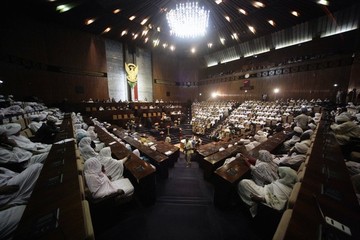Sudan’s NCP thwarts parliamentary attempt to remove customs on imported food
September 8, 2014 (KHARTOUM) – The ruling National Congress Party (NCP) has squashed attempts by parliamentary subcommittees to exempt imported food from customs in a bid to curb growing price increases to basic commodities.

Despite relative stability of the Sudanese pound (SDG) exchange rate against the US dollar (9.5 SDG = 1 USD),prices of items such as cooking oils, onions, meats, milk and dairy products have continued to go up.
The government was recently forced to reduce the tax on imported cooking oil by 30% in an attempt to rein in its prices.
The head of the NCP economic sector in Khartoum state, al-Mahi Khalafalla, said there is no intention by the government to cancel the duties on consumer goods to curb rising prices, describing it a“s impossible”, although he did not rule out reducing the rates.
Khalafalla said such a move is not economically sound in terms of taxes as it is a guaranteed right for the average citizen so that the state is able to respond to the aspirations of its citizens.
He stressed the existence of official controls on the market but not through mandatory pricing, saying the latter involves injustice to the seller if the price is less than its cost or to the buyer if the price was too high.
The NCP official said the state has a role in controlling markets through combating monopoly, fraud and manipulation.
He added that the government is still continuing its efforts to overcome the high cost of living but said that bringing prices under control requires increasing productivity and reducing the cost of production. Khalafalla also noted that there is a general global surge in food prices which is beyond the government’s control.
According to the monthly bulletin issued by the Central Bureau of Statistics (CBS) on Sunday, Sudan’s inflation rate edged downwards in the month of August to 46.4% from 46.8% in July.
The International Monetary Fund (IMF) said in a report last month that it expects inflation to “continue its downward trend thus bringing consumer price inflation down to single digits”.
“Twelve-month inflation fell to 35.7 percent at end March, from 41.9 percent at end-December 2013, mainly reflecting lower food prices,” it said.
In a related issue the Moawia Elberier Group denied reports that it plans to shut down its plants, saying that “our factories will continue fulfilling its mission to serve the homeland and the citizens and will not stop”.
The Qatar-based al-Sharq newspaper reported that the group planned the shutdown in light of high duties, taxes and government-imposed levies.
(ST)
